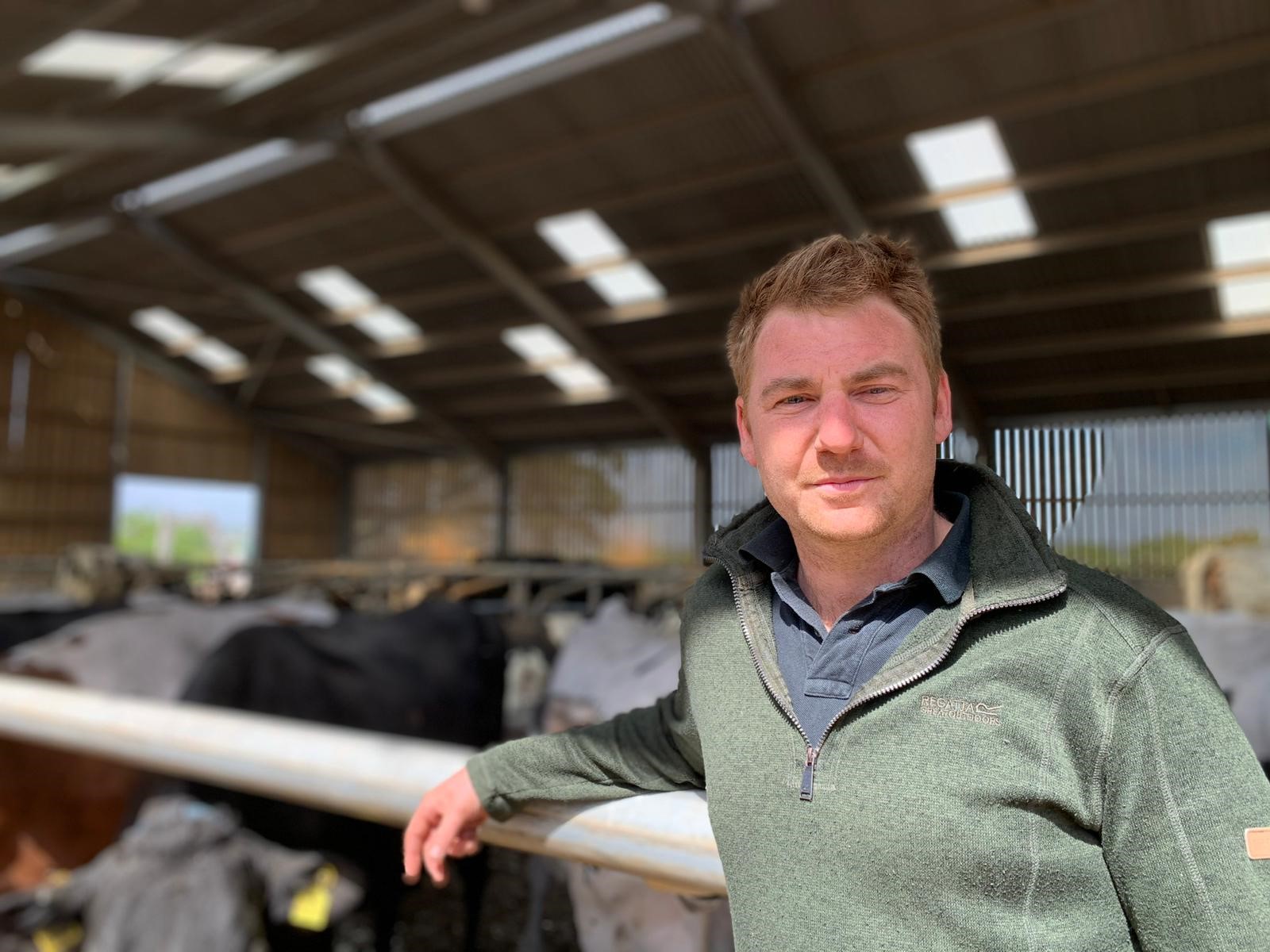- Home
- Blood testing key to reducing stillborn calves in heifers
Blood testing key to reducing stillborn calves in heifers
Identifying trace element deficiencies by blood testing helped Flintshire dairy farmer Tom Bletcher to reduce his stillborn rate from 8% to 2% in his replacement heifers, leading to significant cost savings.
Tom Bletcher and his father Roger manage their 400-cow, all-year-round calving herd at Argoed Hall Farm in Mold, Flintshire. The farm was enrolled onto the HerdAdvance project in spring 2019.
As part of HerdAdvance, the farm team had their first meeting to discuss overall herd health and identify priority areas with their farm vet and AHDB Animal Health Knowledge Exchange Manager, Ifan Owen. Cases of stillborns within heifers was identified as an area of concern, with an average of 8% per month over the previous 12 months, peaking at 20% in the highest month.
The high stillborn rate was having a significant financial impact on the farm. Tom said: “We were short on heifer replacements coming into the herd, and we were losing some of our highest genetic merit animals that we had invested heavily into through the use of sexed semen.”
Losing calves despite staff focusing their attention on calving heifers was also having a negative impact on staff morale, with Tom commenting: “There’s nothing more demoralising than having a lot of stillborns after all the hard work involved in rearing the heifers.”
With financial support through Farming Connect’s Animal Health Clinic, the vet took blood samples from in-calf heifers. This indicated heifers were suffering with trace element deficiency, in particular selenium, which can lead to early foetal abortions.
Following this discovery, the farm began giving in-calf heifers a bolus at turnout, providing them with sufficient trace elements until they calve. Heifers under 500kg are given one bolus, and those over 500kg are given two. This has had a significant positive impact over the last 12 months, with average stillborn cases dropping to just 2% compared to the previous 8% per month.
Lowering the stillborn rate has led to more high genetic merit heifers on farm, allowing the team to meet their replacement rate and be more selective when making breeding decisions. The farm now serves a higher proportion of the herd to beef, which provides an additional income stream.
Argoed Hall’s average replacement cost is calculated at £1,231, with the heifer replacement value being £245 of this cost. Therefore, reducing the stillborn rate from 8% to 2% has an average cost saving of £1,470.
Tom said: “We are extremely pleased with the improvements made. We knew we had an issue and being part of the HerdAdvance project highlighted that there was room for improvement, prompting us to take action and see great results.”
Ifan said: “Tom has demonstrated what is achievable by having access to accurate health records. By having that information to hand, the team have been able to make informed management decisions and continue to monitor the benefits. Bill Gates once said: ‘How you gather, manage, and use information will determine whether you win or lose’, and Argoed Hall Farm have identified a recording system that works for them.”
Learn more about improving dairy calf management
Argoed Hall Farm is one of 500 farms selected by AHDB to take part in its HerdAdvance project, which aims to help Welsh dairy farmers lift profitability and performance by focusing on improved herd health management and disease control.
HerdAdvance is part of the five-year Dairy Improvement Programme, which is funded by the Welsh Government and the European Union.



